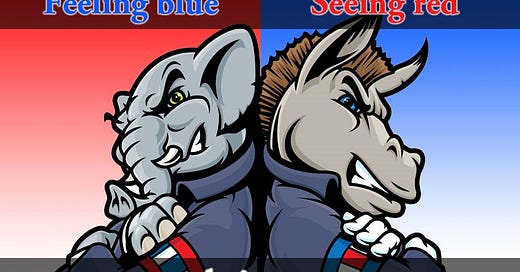The Failure of Politics

1520s, "science of government," from politic (adj.), modeled on Aristotle's ta politika "affairs of state," the name of his book on governing and governments […] Politics is the science of good sense, applied to public affairs [….] Politicks is not a science so properly as a business. [Fisher Ames (1758-1808)]
Even before I started writing it, I changed the title of this post several times. I knew exactly what I wanted to say and talk about, I just had a problem putting a label on it. What are we failing at? Courage? Cultural confidence? Determination? Communication? Honesty? Understanding? I couldn’t think of the word politics because I was looking for a positive word, and politics is not one of them, but then I realized that I should let go of my own prejudices. Politics means the management of our shared affairs. It means making decisions about our shared affairs and as an extension, having honest discussions about them. Politics should not be the dirty word it is today. Political discourse seems to be breaking down all around the world as it is getting more polarized, more confrontational. Every issue is overshadowed by political self-interest and political rhetoric. No matter what the subject is, the goal of each participant of the discussion is the advancement of their own political agenda regardless of how unrelated it may be to the subject at hand. Political conversations tend to descend into name calling and accusations of immorality. I could at this point get into a long rant against liberals, socialists, leftists and statists in general whom I happen to blame for 80-90% for this failure of communication, but with such partisan behaviour I would be the point instead of making it. The only point here is the fact that we have communication problems. That we lack civility. That we constantly question our opponents’ intelligence, morality and intentions. That we all have some taboo subjects we refuse to talk about. That some of us are all too ready to resort to violence to shut up our opponents. That often we cannot even define what we are or what we should be talking about. The ideal of politics (management of our shared affairs) tend to lose to the reality of politics, the petty bickering about the power to force EVERYBODY to act and live according to our respective standards. I could hardly name any issue that has not fallen victim of this lack of reason and civility, but the ones that are suffering from it the most are the most pressing issues of the day. When someone like Trump makes a suggestion that goes contrary to accepted dogma, the media goes into war mode. NOT to present reasoned arguments to show why he is wrong, but to spew venom about his audacity to spell out what most people already think anyway. Climate, gender, immigration and race are all subjects with some taboo areas. They all have aspects that cannot be questioned in a polite conversation. Not even to find out whether we agree on it for the same reasons. I am sure I’m not the only person ever to be dismissed with the indignant argument “………. if it isn’t obvious to you, I cannot possibly explain it.” – or – “well, everybody knows that……”. When I point out that obvious things should be easy to explain, the conversation ends. This may be understandable in personal conversations, but it should be unacceptable when we try to create public policy. It is not possible to make sensible decisions if we cannot have sensible conversations about their subjects. There is absolutely NOTHING in this world that should be beyond the possibility of discussion. Unfortunately, an increasing number of subjects, questions and even words and expressions are. I would like to think that there is nothing you cannot discuss with me as long as I know enough about the subject to discuss it. Any time a discussion I have breaks down, it is clear that my opponent does not have a reasonable argument. Any time a discussion of a public policy matter breaks down, any time it morphs into accusations and name calling, you know that the side resorting to it have no arguments. If they did, they would not have to resort to politics. The problem is not that we cannot resolve our differences, the problem is that we cannot even discuss them any more. The failure of politics is the greatest of the three failures (Imagination – Analysis – politics). The failure of politics is a dangerous one. If we cannot resolve our differences with honest discussions, we will inevitably descend into resolving them in other ways or end up ignoring them. Problems that are ignored will only get worse. Causes without convincing arguments can only win with the coercive and corrupting power of politics. Politics may only stay civilised as long as all participants are willing to make reasonable compromises. Without that, the only option is power. In this sense, the failure of politics is the victory of politics; the failure of “good sense applied to public affairs” is the victory of coercion and power.
~ ~ ~ ~ ~ ~ ~
This is part three on our failures dealing with our problems. How we: Don’t really think about them – http://zorkhun.com/wp/2015/11/26/the-failure-of-imagination Don’t really analyze them - http://zorkhun.com/wp/2015/11/27/the-failure-of-analysis and Don’t really discuss them – (this post)



